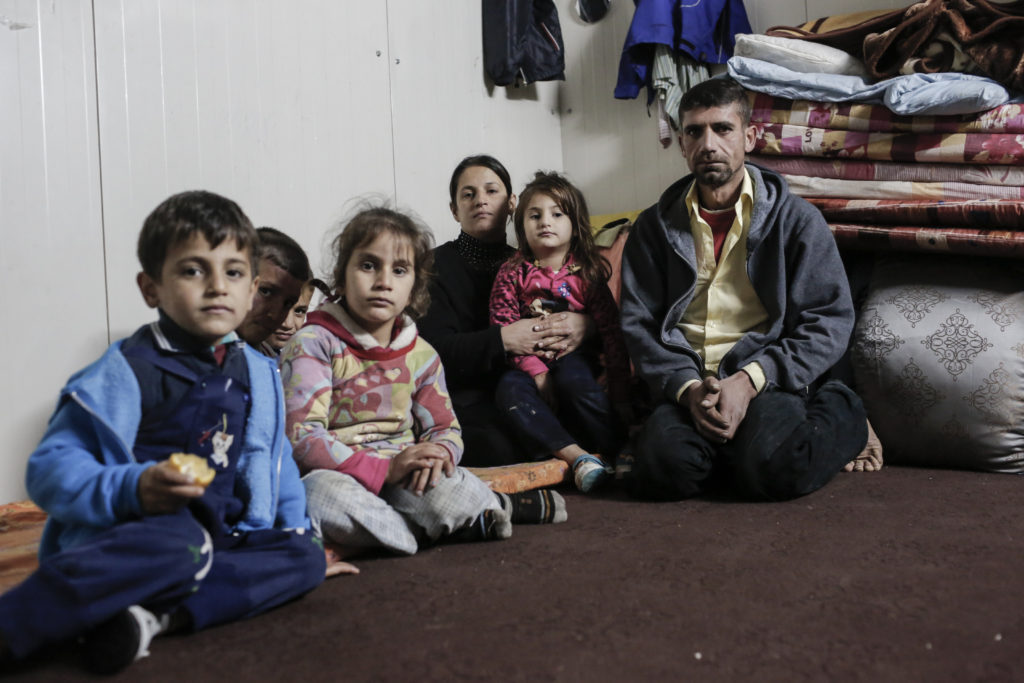iraqi family
Saddam Hina Qraya and his family sit in the prefabricated container in which they now live in a partially constructed building in Ainkawa, Erbil, Iraq, on December 3, 2014.
Saddam is a casual laborer who had recently left the army before being forced to flee from his home in Qarakosh before Islamic State militants overran their town. The so-called Islamic State is a radical Islamic militant group that controls territory in both Iraq and Syria. The fall of Mosul to IS in August and their subsequent advances is thought to have displaced over 1 million people, most of whom were Yazidis, Christians and other minorities, but also Muslim families too.
The building is crowded noisy and cold. Since arriving in Erbil in August this year, his family have been provided with the dwelling in which they live, and given blankets and bedding. They have also been given kerosene heater but are unable to afford fuel for it.
Saddam, a father of five manages to find the odd day’s labour but otherwise struggles to provide for his family.
He told Caritas: “My home in Qarakosh was like a palace. Now I am sitting in a caravan. What kind of future do I have? I’m frustrated and depressed. I ‘m so sad because we’ve received no help for the last two months. It’s so cold that my kids are getting sick. We don’t have enough money to buy medicine. When it rains here the whole place floods.”
“We need food, we need kerosene. You try living a day like this.”
“We need a solution. Either we have to go home or leave Iraq. But I cannot leave: we don’t have passports and we don’t have the money to get them. We have to return to Qarakosh.”
On the prospect of spending christmas Christmas away from home, Saddam told Caritas: ” At Christmastime in Qarakosh we buy gifts, go to church and visit friends and relatives while here we cannot buy gifts. We can’t buy anything for the children. We don’t have a Christmas tree. We’re Orthodox and the churches here are Catholic. We don’t see any
